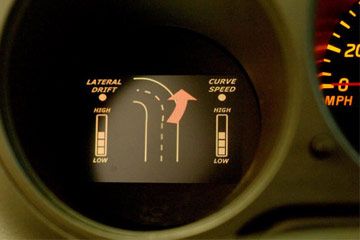According to the experts, car interiors are actually toxic all year round. However, there are two times when the chemicals are at their highest levels: when the car is brand new, and in the summer. It makes sense that freshly manufactured materials would still carry some residue from their production, and that compounds would get released as the car's parts start to get used (seats being sat in, dashboard controls being touched, carpet being rubbed). These chemicals are what cause the "new car smell" that some people love and others can't stand. Over time, the excess levels of chemicals start to wear off. They're still there, but they're being released in much lower doses. This process is called "offgassing." That is, until the summer. When it gets hot outside, some of these toxic fumes start to get stirred up and released again. That's because exposure to heat speeds up offgassing, and so does exposure to ultraviolet light from the sun's rays.
There are so many chemicals in an average car, causing such a variety of problems, that there's no point in listing them all. Some experts say there are around 275 possible contaminants, with about 50 being the most prevalent [source: Weathers]. They can be broadly categorized, though. Vinyl, the cheap plastic-like upholstery material, is one of the very worst. Other offenders are formaldehyde, a preservative; flame retardants, which help protect the cars' occupants from the heat of the engine bay and exhaust; heavy metals and various plastics, which make up components such as the dashboard, door handles and armrests. The mildest symptoms of inhaling these chemicals are nausea and headaches, which many people might not even think is related to their new car. Over time, though, the prolonged exposure can cause problems with the central nervous system, hormones, memory loss and cancer, among other scare factors.
Advertisement
Car manufacturers are conscious of this issue and are taking steps to reduce the chemicals used in vehicle interiors, but there is no federal testing or a standard for acceptable chemical levels in the United States. So until offgassing is reduced a lot more, it's up to consumers to be vigilant. The best way to cope with offgassing is to keep the car well ventilated, both when it's new and in the summer. Right after buying the car, keep the windows down as much as possible to let the chemical buildup escape and let fresh air circulate inside. In the summer, keep the windows open just a little, if possible, and use UV-resistant sun shields in the windows to keep sunlight off the plastics and upholstery materials. Another important tip is to leave the windows down for a few minutes before starting the air conditioner. It might be uncomfortable, but it'll allow some of that gas to escape before getting sucked into the air conditioning system, where it'll just get recirculated. Of course, the best tactic is to reduce the amount of time you spend in the car.


